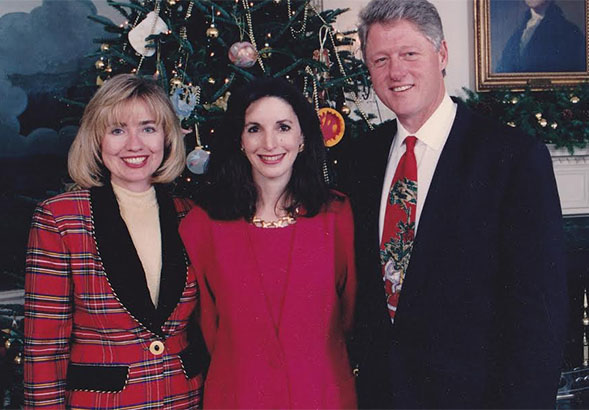Off the Beaten Course: IB 498
International Business Protocol and Diplomacy explores how different cultures come together to create business opportunities.

Off the Beaten Course is a series that delves into SDSU's course catalog to share unique and non-traditional classes.
Course title: Doing Business Internationally: International Business Protocol and Diplomacy
Professor’s name: Elena Salsitz
1) What inspired you to create this course?
This class had been taught prior to my teaching it, but in a different format. Among other changes, I added a speaker series to the class to expose students to fascinating professionals who have applied in practical ways the protocol and diplomacy concepts we discuss in class.
2) What can students expect to learn from this course?
I hope students leave the class with a new understanding and sensitivity to not only different cultures and effective ways to do business and establish lasting and mutually beneficial relationships, but also to why cultures evolve in the ways they do, and how each region’s and culture’s history, political considerations and other factors contribute to shaping its cultural personality.
With that as a foundation, we don’t necessarily need books or websites or memorization to know how to interact — we can deduce that based on this cultural familiarity.
3) What makes this course different from similar courses?
Our classes are extremely discussion-driven, hands-on, participatory and interactive. We spend time nearly every class discussing events in the domestic and international news media highlighting protocol faux pas and cultural misunderstandings, which emphasize the importance of this class.
The class focuses on cross-cultural simulations, where students write and evaluate in-class presentations before their fellow students, demonstrating a full and comprehensive understanding of business protocol across regions. I am delighted, intrigued and sometimes astounded by the ingenuity and creativity of my students, who come up with innovative scenarios to communicate complex and difficult diplomatic concepts.
I believe the structure of my course — relatively low-stress, a lot of humor and levity, relating our concepts to issues, events, and concepts in the media every day — encourages learning and long-term retention. Former students regularly write to me that they’ve remembered and used what they’ve learned in our class in their post-school jobs and lives.
Our speaker series is also outstanding. Our speakers include a CEO of an international company discussing a global merger/acquisition from a cross-cultural perspective and a military leader who served as commanding officer at Camp David, who leads a live case study in protocol accommodation for a Middle East summit.
4) Is there one day on the syllabus for this course you most look forward to? If yes, why?
I look forward to every class, but our second class each semester stands out as particularly compelling. We spend the entire class period talking about stereotypes and generalizations, and use our own country as a “target,” with international students and U.S. students alike covering the board with stereotypes, positive and negative (and trying to have thick skins!). Each session, I believe we all learn something we didn’t know before about what the world thinks of us, and how to either behave so as to negate or reinforce it.
5) What’s your favorite thing about teaching this course?
My students. International business students are superstars. Internationally engaged, informed, multilingual, tireless, driven to succeed, open, candid and ambitious.
6) Any other thoughts?
I’ve managed protocol for NASA and the City of San Diego, hosted presidents, prime ministers, ambassadors, kings, queens, worked in the White House, at NBC, and as British Honorary Consul in San Diego. And yet I’m continually humbled by my students. What an honor and privilege to get to teach at one of the world’s top international business programs.



